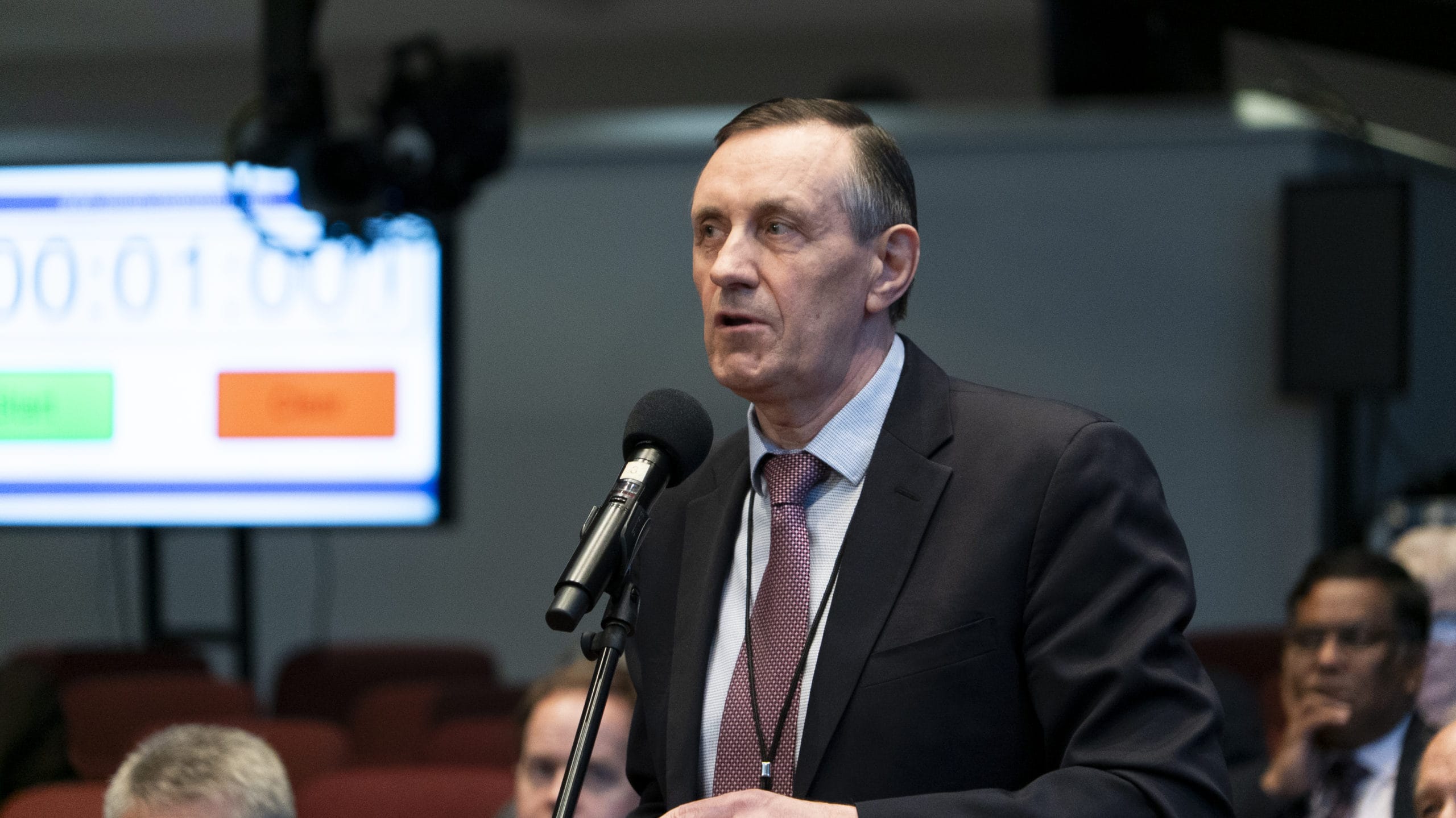
On April 10, members of the General Conference Executive Committee (GC EXCOM) voted to approve a document that seeks to support Seventh-day Adventist pastors, teachers, and church members in their efforts to respond to current theological and doctrinal challenges.
The vote took place on the second and last day of Spring Meeting at the Adventist Church headquarters in Silver Spring, Maryland, United States.
Ted N. C. Wilson, GC president, acknowledged that the rationale behind the document is to provide “an initiative to help stem the tide, to stop the drift, to help reduce the slippage of church members, teachers, pastors, all of us who are tempted in some way to have a non-biblical understanding of the truths that we hold firm.”
For examples, Wilson listed “the belief that somehow my relatives who are dead are in heaven somehow,” or “not sure whether the Holy Spirit or even the Son of God is from eternity,” or, “I’m not sure if Ellen White is really a prophet.”
After Wilson’s introduction, Michael Ryan, GC assistant to the president for special projects, provided some background and timeline that led up to the inclusion of the document as an agenda item for the 2024 Spring Meeting. He acknowledged that its rationale was the awareness of some “areas of concern, where there is some slippage in the Bible-based way of understanding some of the Adventist doctrines.”
Ryan shared how, in a series of meetings of the GC Division Officers (GCDOs) held September 30 to October 2, 2023, the leaders discussed and asked themselves, “What can we possibly do about this … so these truths are not only brought before our people but also proclaimed to the world?” He shared that three subcommittees worked to begin providing ways to tackle these issues. The work of these subcommittees “is not the end, but it will be a beginning by which we can have a clear understanding among our church members and in every venue, every entity, and we can also have a clear message that we proclaim to the world,” Ryan said.
At the same time, Ryan added, “we can celebrate the fact that the leaders in this room … have an eager desire for what the Bible and the Spirit of Prophecy has asked the church to do, and I praise the Lord for that kind of leadership.”
Global Bible and Mission Conferences
A first subcommittee recommends the hosting of global Bible and mission conferences that encourage pastors, elders, theologians, and teachers to proclaim the Bible truth to church members, students, and the world.
The subcommittee recommended that the Biblical Research Institute, under the guidance of the Global and Bible Missions Conference Committee, take the lead in organizing these conferences. It also recommended that the event organizers prepare video presentations in major languages, with links that allow for feedback and to ask questions and receive answers, among other initiatives.
Global Content and Media Proclamation
A second subcommittee focused on Global Content and Media Proclamation, recommending print and digital content production to reach every segment of the church. The goal is “to address pressing doctrinal and theological issues related to the authority of Scripture and the trustworthiness of our Seventh-day Adventist prophetic interpretation.”
Among other initiatives, they recommended a textbook on the prophetic gift, a book on the topic of Sola Scriptura (“the Bible only”), and a special volume on Bible interpretation.
Strengthening Religious and Theological Education
The third subcommittee worked on recommendations for strengthening formal theological education, pastoral continuing education, and member religious education. Leaders explained that this is urgently needed because research is showing somewhat negative trends regarding members’ attachment to beliefs such as the prophetic writings of Ellen G. White, the investigative judgment, the Trinity, a literal six-day creation, and the Seventh-day Adventist Church as the remnant church. “It also shows an increase in the belief that the dead are in heaven, and belief that it is acceptable to go to a witch doctor,” they said.
Among other initiatives, the third subcommittee recommended ways to develop committed Adventist faculty for the future, developing clear criteria in faculty hiring for those who teach religion and theology, and reviewing core curriculum requirements for religion classes. It also emphasized strengthening the work of the International Board of Ministerial and Theological Education (IBMTE) and other entities to support theological education within their territories.
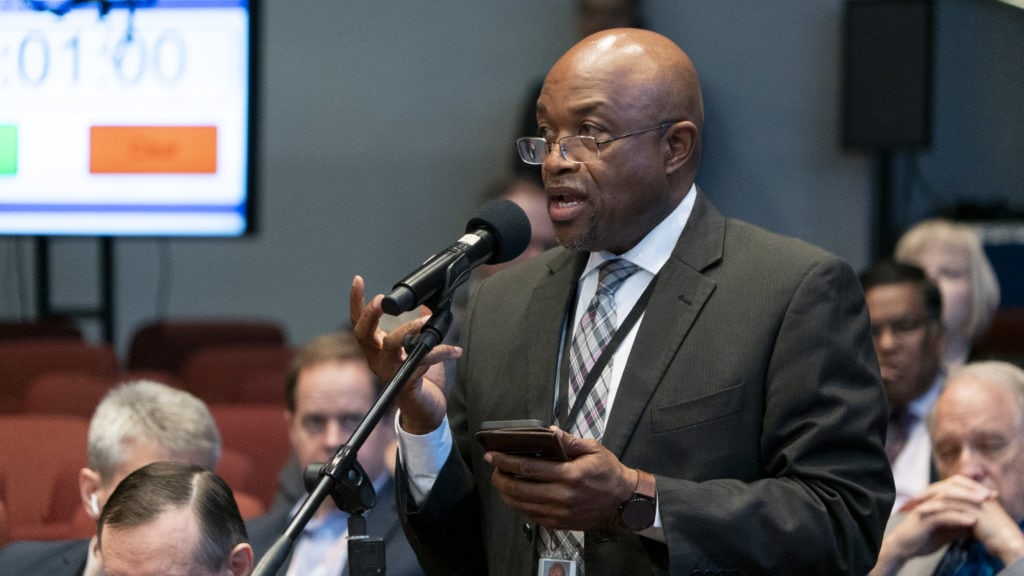
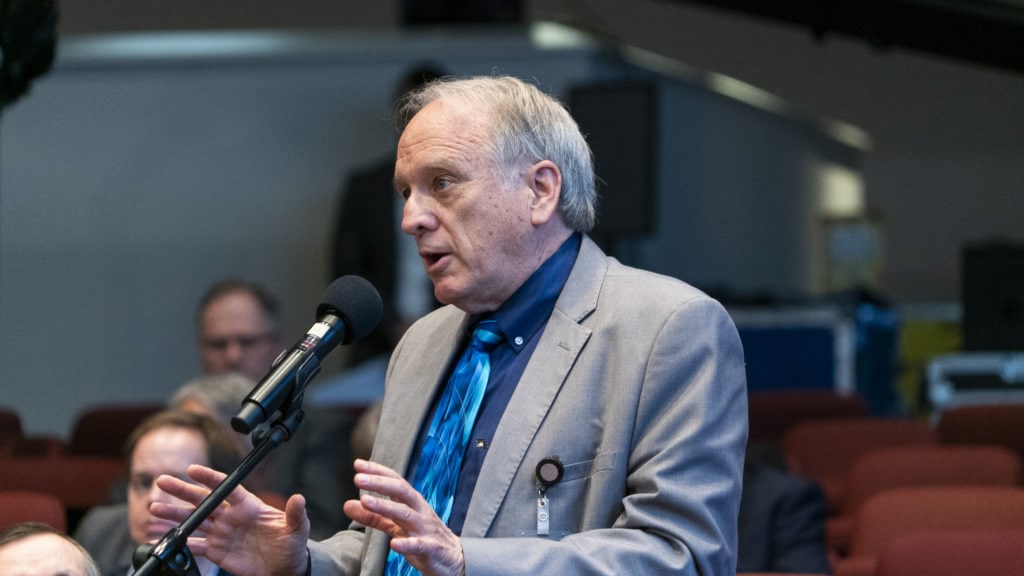
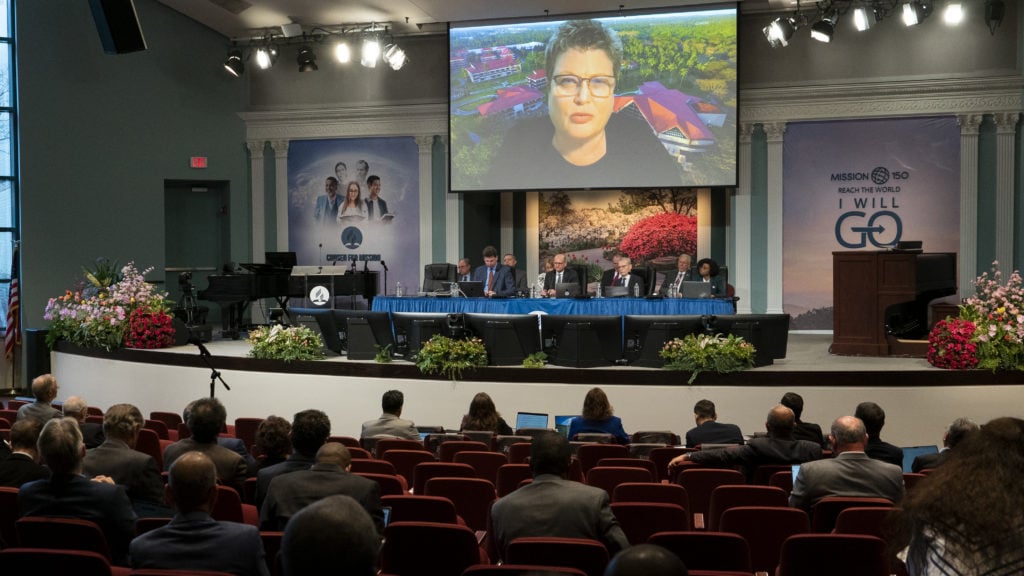
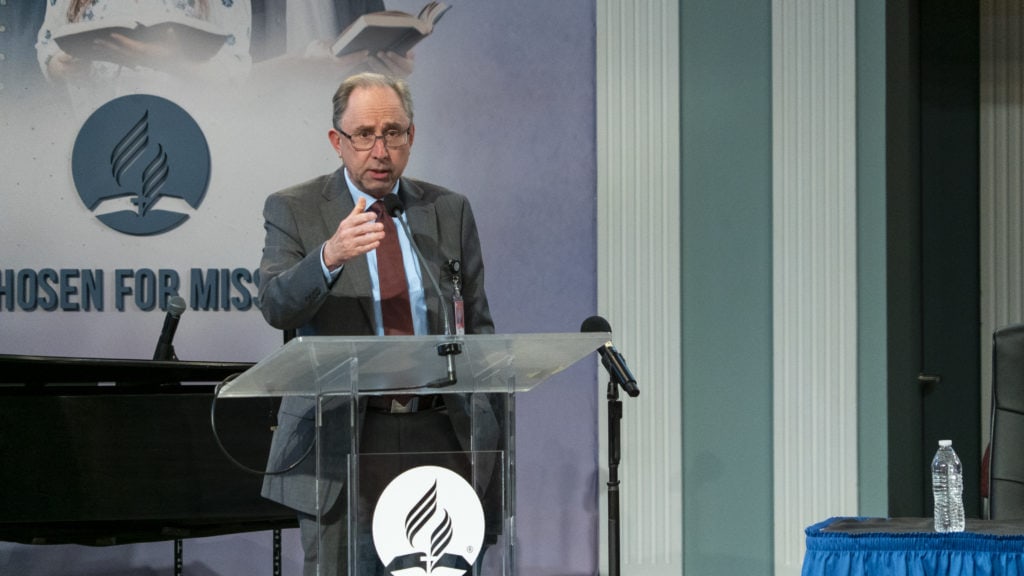
Tackling an Issue
When the floor opened for comments, GC EXCOM member Harold Butler was the first to react to the document presented. “As a layman, as I talk to other laymen … the major concern they have is the slippage in the Seventh-day Adventist Church,” he said, talking through the Zoom videoconference platform. “And I am very happy about this item because it answers the question, What is the church doing about this slippage?”
Ella Simmons agreed. “It gives me great delight to speak to this item,” she said. “For years, educational leaders have expressed concerns about this at an anecdotical level. But the data have provided the tangible evidence that allows this set of recommendations. I am thrilled and I praise God for the work that has been done.”
At the same time, Simmons and others after her suggested including science education as part of this renewed emphasis on Bible-based beliefs.
Forgetting Our History?
“I am thrilled that this measure’s been taken,” said GC EXCOM member Andi Hunsaker, president of Adventist Laymen’s Services and Industries (ASi), citing a renewed emphasis on educating church members. At the same time, Hunsaker said, she wondered if some of the current challenges in the Adventist Church don’t result only from lack of knowledge. “Part of the problem is that we as a people have forgotten our history. Unless we remember our history, we lose our identity, and if we don’t have our identity which defines our mission, purpose, and reason for being, we as a church will continue to make the same errors,” Hunsaker said.
David Trim agreed. “I would like to commend the work of the [committees] and affirm the recommendations,” he said, “but I would make the plea that the work does not only include theologians but also historians.… History is crucial and shapes our theology today.”
More than a Theological Problem
North American Division president G. Alexander Bryant commented that he appreciated “the broad approach that we are taking with this.” He added, “I hope it doesn’t get stuck just at a formal theological educational level, because I think that our challenge is greater than that.”
Tom Lemon, a general vice president of the GC, said he supported the document. He also suggested that the church avoid using it to assign blame to pastors or teachers. According to him, when sharing the document, the focus should be “to encourage our pastors, and to encourage our teachers. I am all for encouragement,” Lemon emphasized.
Various Takes on the Issue
Mark Finley, also GC assistant to the president for special projects, said he appreciated “the spirit of the document and the spirit of the discussions we had.” Finley added that the discussions “were open, were honest,” and the document “is written in a way that can embrace rather than repel.”
Finley also emphasized that Adventist mission is extremely dependent on its message. “If there’s an erosion of confidence in some of our fundamental beliefs, that erosion will affect other beliefs,” he warned.
On a different note, Ginger Ketting-Weller, president of the Adventist International Institute of Advanced Studies (AIIAS), commented that while she supported the concern that motivated the document wholeheartedly, she couldn’t say that she supported the remedy on the section dealing with educational institutions. She suggested including educators in the discussions of policies and how to implement some of recommendations crafted by the subcommittees. In doing so, Ketting-Weller agreed with GC education director Lisa Beardsley-Hardy, who had earlier asked for clarifications on some aspects regarding to the governance and management of educational institutions and their relation to the document presented.
But for Biblical Research Institute director Elias Brasil de Souza, the rationale for the document is clear-cut. “We see trends on the horizon, and we need to be proactive,” he said. “This document seeks to be proactive.”
After more than two and a half hours of presentations and discussions, GC EXCOM members voted “to approve the recommendations from the special GCDO Recommendation Steering Committee as presented” by a margin of 125 to 29.